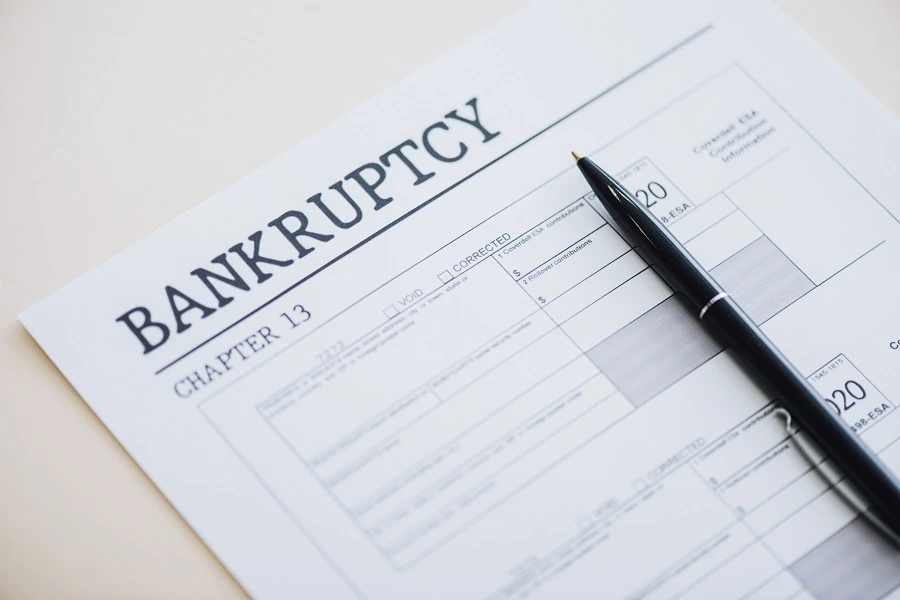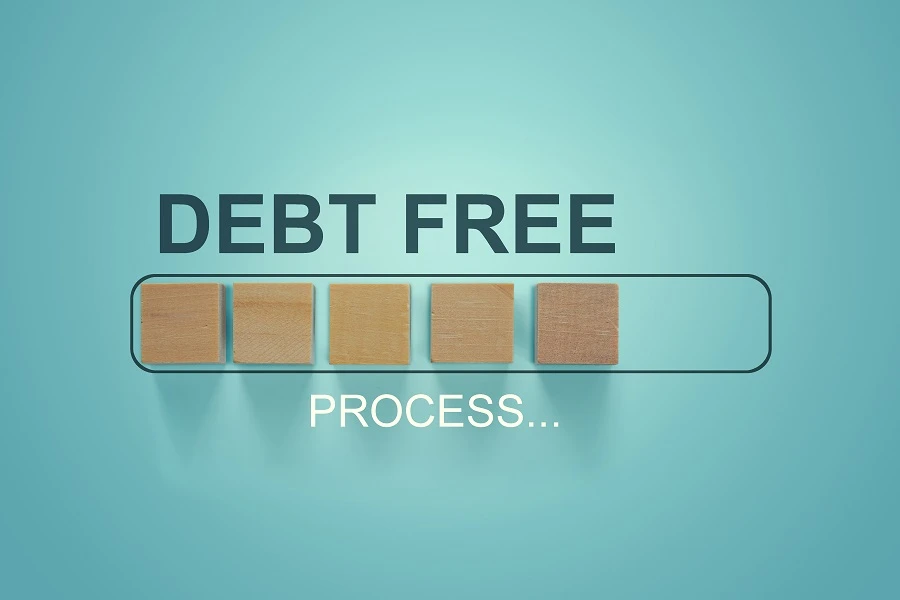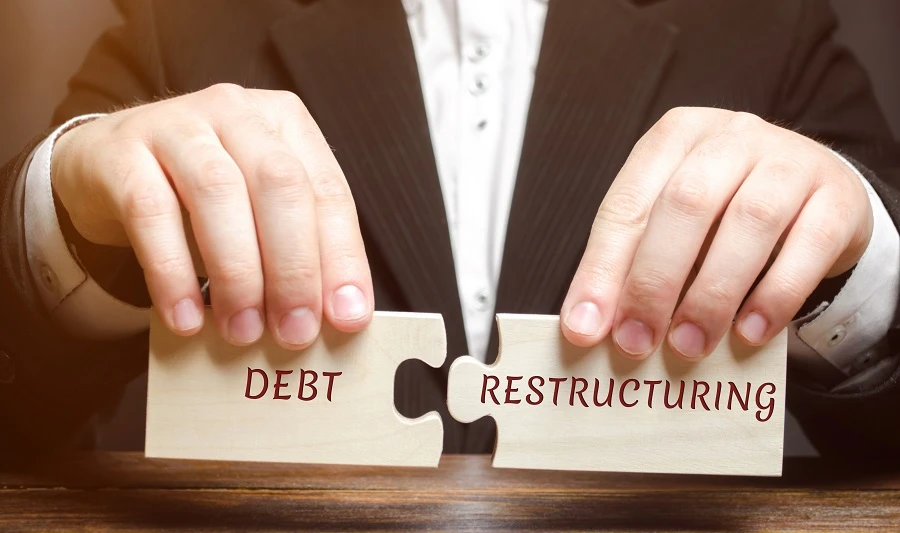Table of Contents
Are mounting bills causing you sleepless nights? Are you facing foreclosure or repossession? If you’re struggling with debt but own assets you want to keep, Chapter 13 bankruptcy may be a solution. This chapter of the U.S. Bankruptcy Code allows individuals with steady incomes to create manageable repayment plans to become debt-free within a set period.
The Mississippi bankruptcy attorneys from Brown, Bass & Jeter explain who qualifies for Chapter 13 bankruptcy, how it works, and why it could help you get back on solid financial ground.
What Is Chapter 13?
Chapter 13 bankruptcy, also known as a wage earner’s plan, is a debt relief option for individuals with regular incomes. It allows you to create a court-approved repayment plan to manage your outstanding debts over a period of three to five years.
Here’s a breakdown of the key features:
Reorganization, Not Elimination
Unlike Chapter 7 bankruptcy, which discharges some debts entirely, Chapter 13 focuses on repayment. You’ll develop a plan to allocate some of your income toward paying off all or a significant portion of your debts.
Court-Supervised Plan
A bankruptcy trustee will oversee the entire process. The trustee’s goal is to ensure your proposed repayment plan is fair and feasible. They will also collect your monthly payments and distribute them to your creditors.
Keeping Your Assets
A major benefit of Chapter 13 is the ability to retain ownership of some of your property. This is especially helpful if you’re behind on mortgage or car payments but want to avoid foreclosure or repossession.


Chapter 13 bankruptcy isn’t a one-size-fits-all solution.
Specific criteria determine who is eligible:
- Income requirement: You must have a steady income source sufficient to make payments under your proposed repayment plan.
- Debt limits: As of 2024, the filer must owe less than $2,750,000 in total unsecured and secured debt.
- Tax filings: You’ll need to be current on your federal and state income tax filings for the four years preceding your bankruptcy petition.
- Prior bankruptcy filings: A certain number of years must have elapsed since previous bankruptcy filings.
- Not for businesses: Chapter 13 is intended for individuals and unincorporated businesses, not corporations or partnerships.
- Nature of your debts: Certain types of debt, like student loans or child support, cannot be discharged through Chapter 13.
- Exempt vs. nonexempt assets: States have different laws regarding exempt assets, such as homes, cars, and household belongings.
In Mississippi, you can exempt up to $75,000 of home equity, $10,000 of personal property, and most types of retirement funds. Cars are not exempt assets in Mississippi bankruptcies, but filers can include them under the personal property exemption.
Which Debts Can Be Discharged in Chapter 13 Bankruptcy?
| Debt Discharge Under Chapter 13 Bankruptcy | |
|---|---|
| Debts that Can Be Discharged | Debts that Cannot Be Discharged |
| Credit card debt | Past-due alimony or child support |
| Medical debt | Criminal fines |
| Personal loans | Certain unpaid taxes |
| Past-due utility and cell phone bills | Federal student loans |
| Past-due rent | Mortgage debt |
After you file Chapter 13 bankruptcy, you’ll make payments on a court-approved repayment plan. Depending on the plan, some remaining eligible debts can be discharged after you successfully complete it.
Here’s a breakdown of the dischargeable and nondischargeable debts in Chapter 13:
Most types of consumer debt, along with some tax debts, are dischargeable.
These include some unsecured debts that are not tied to collateral, such as a house or car:
- Credit card debt
- Medical bills
- Personal loans
- Utility bills
- Certain qualifying past-due income taxes
Other types of debt are nondischargeable and have priority.
For example, these debts must be paid in full through your plan:
- Child support and alimony arrears
- Certain tax debts beyond a certain limit
- Certain court fees and fines, such as for DUI or DWI
Domestic support obligations like future child support and alimony payments are not eliminated through bankruptcy. And in most cases, federal student loans and private student loans cannot be discharged. The loans will survive the bankruptcy, and you will continue paying on them.
How to File for Chapter 13 Bankruptcy

Filing for bankruptcy can seem daunting, but with the right guidance, you can navigate the process effectively.
Here’s a breakdown of the key steps involved:
Pre-Bankruptcy Requirements
Before filing, you’ll complete a credit counseling course approved by the U.S. Department of Justice. This course helps you assess your financial situation and explore alternatives to bankruptcy.
You’ll also undergo a means test to determine whether your income makes you eligible for Chapter 13 bankruptcy.
Preparing Your Case
You’ll need to assemble documents such as tax returns, pay stubs, proof of income, bank statements, and a list of your assets and debts.
As you prepare your bankruptcy case, an experienced attorney at Brown, Bass & Jeter can guide you through the entire process. We’ll handle the paperwork and explore the benefits of Chapter 13 for your specific situation.
With your attorney’s help, you’ll create a detailed repayment plan outlining your income, your expenses, and a proposed allocation of funds toward your debts over three to five years.
Filing the Petition and Court Proceedings
Your attorney will file a petition with the bankruptcy court in the district where you reside. Then, the court will appoint a bankruptcy trustee to oversee your case.
A meeting of creditors will be held where you and your attorney present your repayment plan. The court will review the plan and consider whether it meets all legal requirements and whether a majority of your creditors approve it. If so, the court will confirm the plan.

Repayment and Monitoring
Throughout the court-ordered repayment period, you’ll make monthly payments to a trustee, who will distribute the funds to your creditors according to the confirmed plan. It’s crucial to adhere to the terms of your repayment plan and make your payments on time.
Debt Discharge
Upon successful completion of your repayment plan, the court will typically discharge any remaining eligible debts. This means you are no longer legally obligated to repay them.
Contact a Jackson Bankruptcy Attorney Today
Throughout the bankruptcy filing process, Brown, Bass & Jeter will be by your side, offering guidance and support. Our goal is to ensure that you understand each step of the Chapter 13 filing process. Contact us today for a consultation.
How Long Does Chapter 13 Take to Discharge Debt?
The core of Chapter 13 is your court-approved repayment plan, typically lasting three to five years. During this time, you’ll make monthly payments that address both past-due obligations and your ongoing financial commitments.
How Does Chapter 13 Bankruptcy Affect Your Credit Score?
Chapter 13 will likely cause your credit score to decline. How much it declines can vary significantly depending on your starting credit score. If you had a very high credit score before filing, the drop can be substantial. Conversely, if your credit report already contained negative marks, bankruptcy will make less of an impact.
How Long Does Chapter 13 Bankruptcy Stay on Your Credit Report?
Chapter 13 bankruptcy will typically stay on your credit report for seven years from the date you file the petition with the bankruptcy court. However, its impact weakens over time. FICO, a major credit scoring company, confirms this lessening effect as time passes.
After seven years have passed, the Chapter 13 bankruptcy information should be automatically deleted from your credit reports.

How Often Can You File Chapter 13?
If you successfully completed your court-ordered repayment plan and received a discharge of your eligible debts in your prior Chapter 13 case, you must generally wait two years before being eligible for discharging debts under Chapter 13 again.
Those who previously filed for bankruptcy under Chapter 7 will have to wait longer — typically four years.
How Much Will I Pay in a Chapter 13 Plan?
Unfortunately, there’s no simple answer to how much you’ll pay in a Chapter 13 bankruptcy plan.
The exact amount depends on several factors unique to your situation:
- Monthly income: Chapter 13 requires a steady income stream so you can cover your living expenses and contribute toward your debts.
- Essential expenses: Your monthly costs for housing, food, transportation, and utilities will help determine how much disposable income you have available for debt repayment.
- Total debt amount and types of debts: The total sum of your debts and the types of debts you have significantly impact your plan’s affordability.
For illustrative purposes only, consider this simplified approach: First, add up your priority debt arrears. This includes any past-due amounts on child support, alimony, certain taxes, and certain court fees. Divide the total by the Chapter 13 plan duration of three to five years. This provides an estimated monthly payment for these debts.

Then, estimate your monthly nonpriority debt payments. Consider the total amount you owe for credit card debt, medical bills, personal loans, and similar debts. You can expect to pay at least part of these debts during Chapter 13 bankruptcy, though some may be discharged after you complete your payment plan.
What If I Can’t Afford My Chapter 13 Plan Payment?
Suppose that you miss a Chapter 13 payment or your life circumstances have changed so that you can no longer afford your payments. An experienced bankruptcy attorney can advise you on the best course of action to potentially save your Chapter 13 case.
It’s crucial to act quickly and proactively to minimize negative consequences. Contact your Chapter 13 trustee as soon as possible. They oversee your case and can offer guidance on catching up on missed payments.
After you discuss your situation with your attorney and trustee, you might explore the following potential solutions:
Modify Your Plan
If a temporary hardship caused the missed payment, your attorney can help you file a motion to modify your plan. This might involve extending the repayment period or reducing your monthly payments to make them more manageable.

Make Catch-Up Payments
You might be able to propose a plan to “cure” the default by making additional payments over a short period to bring your account current. The specific details will depend on your case.
Consider Alternatives
If modifying the plan or catching up on payments isn’t feasible, your attorney can explore alternative solutions, such as Chapter 7 bankruptcy or debt consolidation.
Chapter 7 bankruptcy offers debt discharge. However, it comes with different eligibility requirements and can negatively impact your credit score more severely than Chapter 13.
Debt consolidation might simplify your debt situation, but it doesn’t eliminate any debt and may not be suitable for everyone, especially if your debts have high interest rates.
Never ignore a missed payment. Addressing it promptly shows the court your commitment to fulfilling your obligations.

Schedule a Consultation with a Mississippi Bankruptcy Law Firm
Are you ready to explore your bankruptcy options? Schedule a consultation with Mississippi’s trusted bankruptcy law firm, Brown, Bass & Jeter, and start your journey to financial freedom today.
What Is the Cost to File for Chapter 13 Bankruptcy in Mississippi?
The cost to file for Chapter 13 bankruptcy includes mandatory court filing fees and other common expenses:
- Court filing fees: As of May 2024, the filing fee for a Chapter 13 petition in Mississippi is $313.
- Credit counseling courses: The required pre-filing and a post-filing credit counseling course typically cost around $25 to $50 each, but the exact amount may vary.
- Attorney fees: In Mississippi, the cost for a Chapter 13 bankruptcy attorney can range from $1,000 to $2,500 or higher.
- Chapter 13 trustee fees: The trustee who oversees your case will typically charge a fee.
- Plan modification fees: If you need to modify your repayment plan during the case, you might pay additional court filing fees.
If you have concerns about your ability to afford the costs of bankruptcy in Mississippi, schedule a free consultation with a seasoned bankruptcy attorney at Brown, Bass & Jeter.
Chapter 13 vs. Chapter 7

While both Chapter 13 and Chapter 7 bankruptcy offer debt relief to individuals, they are distinct approaches.
Chapter 13 bankruptcy involves debt reorganization. This means that you will create a plan that allows you to manage and repay all or a large percentage of your debt.
In contrast, Chapter 7 involves debt elimination. This chapter focuses on discharging some of your debts entirely. The proceedings may include a court-ordered sale of assets, also known as “liquidation,” to contribute to the repayment of some creditors.
Consider the following differences between Chapter 13 and Chapter 7 bankruptcy:
- Eligibility:
- Chapter 13: You must have a steady income to make plan payments, though there are no specific limits.
- Chapter 7: You must make under the median income in your state to qualify, although there are exceptions depending on a household’s disposable income.
- Assets:
- Chapter 13: You can keep most of your assets, including your car and house, by incorporating them into your repayment plan and catching up on missed payments.
- Chapter 7: You may be required to sell some assets to pay back creditors, depending on their value and exemptions allowed in your state.
- Debt repayment:
- Chapter 13: You propose a plan to repay all or a portion of your debts over a court-ordered period.
- Chapter 7: You eliminate most unsecured debts (credit cards, medical bills) upon successful completion of the case.
- Impact on credit score:
- Chapter 13: The negative impact of Chapter 13 typically remains on your credit report for seven years.
- Chapter 7: The mark stays on your credit report for 10 years and can have a more significant negative impact.
- Timeline:
- Chapter 13: The repayment plan typically lasts three to five years.
- Chapter 7: The process is generally faster, with debt discharge typically occurring within six months.
Your assets, income, and total amount of debt are the primary factors that determine whether Chapter 7 or Chapter 13 is right for you.
Chapter 13 vs. Chapter 11

While both Chapter 13 and Chapter 11 provide paths to financial restructuring, they cater to distinct situations.
Here’s a breakdown of the key differences:
- Who can file?
- Chapter 13: Individuals with a steady income seeking to repay their debts over time.
- Chapter 11: Businesses, corporations, partnerships, and sometimes individuals with a significant amount of debt.
- Debt limits
- Chapter 13: The debt limit is $2,750,000.
- Chapter 11: No debt limits apply.
- The focus of the filing:
- Chapter 13: The filer reorganizes their personal finances through a court-approved repayment plan.
- Chapter 11: A business or entity’s finances are reorganized to become profitable again and avoid liquidation.
- Debt repayment:
- Chapter 13: Secured debts like mortgages or car loans can be brought current; unsecured debts may be partially repaid, with the remaining balance discharged upon plan completion.
- Chapter 11: The debtor presents a reorganization plan to creditors, which may involve restructuring debts, extending repayment periods, or converting debt to equity.
- Timeline
- Chapter 13: Debts are repaid over three to five years.
- Chapter 11: The plan can extend beyond five years, if the court approves.
- Impact on operations:
- Chapter 13: You remain in control of your finances but under court supervision for the repayment plan.
- Chapter 11: Business operations continue under court oversight, often with a court-appointed trustee managing the company’s finances.
- Cost and complexity:
- Chapter 13: Generally less expensive and complex than Chapter 11 due to a simpler process and shorter timeline.
- Chapter 11: Significantly more expensive due to the involvement of bankruptcy professionals and the potential length of the case.
If you own a business that is faced with overwhelming debt, consider contacting a bankruptcy attorney about filing for Chapter 11.
Speak with a Jackson Bankruptcy Attorney
To find out whether you’re a good candidate for Chapter 13, turn to Brown, Bass & Jeter, PLLC. Our compassionate team will review your financial situation without judgment to help you determine how best to regain your footing. Call us or fill out our online contact form to schedule a free case review with a bankruptcy lawyer in Jackson, Mississippi.



